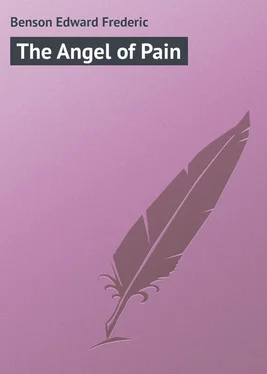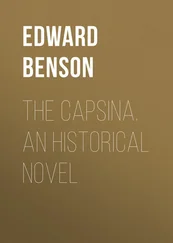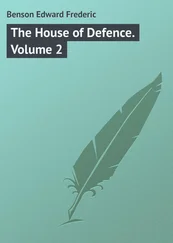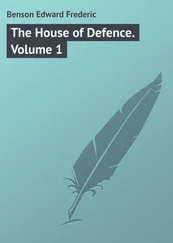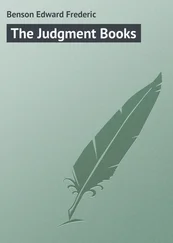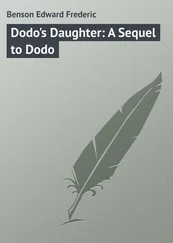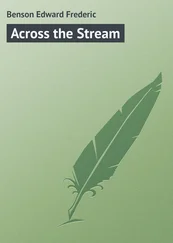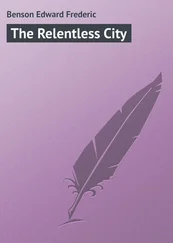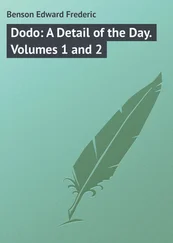Edward Benson - The Angel of Pain
Здесь есть возможность читать онлайн «Edward Benson - The Angel of Pain» — ознакомительный отрывок электронной книги совершенно бесплатно, а после прочтения отрывка купить полную версию. В некоторых случаях можно слушать аудио, скачать через торрент в формате fb2 и присутствует краткое содержание. Жанр: foreign_prose, на английском языке. Описание произведения, (предисловие) а так же отзывы посетителей доступны на портале библиотеки ЛибКат.
- Название:The Angel of Pain
- Автор:
- Жанр:
- Год:неизвестен
- ISBN:нет данных
- Рейтинг книги:5 / 5. Голосов: 1
-
Избранное:Добавить в избранное
- Отзывы:
-
Ваша оценка:
- 100
- 1
- 2
- 3
- 4
- 5
The Angel of Pain: краткое содержание, описание и аннотация
Предлагаем к чтению аннотацию, описание, краткое содержание или предисловие (зависит от того, что написал сам автор книги «The Angel of Pain»). Если вы не нашли необходимую информацию о книге — напишите в комментариях, мы постараемся отыскать её.
The Angel of Pain — читать онлайн ознакомительный отрывок
Ниже представлен текст книги, разбитый по страницам. Система сохранения места последней прочитанной страницы, позволяет с удобством читать онлайн бесплатно книгу «The Angel of Pain», без необходимости каждый раз заново искать на чём Вы остановились. Поставьте закладку, и сможете в любой момент перейти на страницу, на которой закончили чтение.
Интервал:
Закладка:
He strolled along out through the garden into a solitary upland of bush-besprinkled turf. Wild flowers of downland, the rock-rose, the harebell, orchids, and meadow-sweet carpeted the short grass, and midsummer held festival. But this morning his thoughts were distracted from the Nature-world in which he lived, and he found himself dwelling on the human beings among whom for a few days he would pass his time. It was natural from the attitude of this last year that Evelyn Dundas and Mrs. Home should be of the party in the house the most congenial to him, and the simplicity of them both seemed to him far more interesting than the greater complexity of the others. It would, it is true, be hard to find two examples of simplicity so utterly unlike each other, but serene absence of calculation or scheming brought both under one head. They were both, in a way, children of Nature; Mrs. Home on the one hand having arrived at her inheritance by cheerful, unswerving patience and serenity with events external to herself; while in the case of the other, his huge vitality, coupled with his extreme impressionableness to beauty, brought him, so it seemed to Tom Merivale, into very close connection with the essentials of life. But, as he had told his friend, Evelyn’s attitude to life was instinctively Pagan; immoral he was not, for his fastidiousness labelled such a thing ugly, but he had apparently no rudiments even of conscience or sense of moral obligation. And somehow, with that curious sixth sense of prescience, so common in animals, so rare among civilized human beings who, by means of continued calculation and reasoned surmise of the future, which has caused it to wither and atrophize, Tom felt, just as he could feel approaching storms, a vague sense of coming disaster.
The sensation was very undefined, but distinctly unpleasant, and, following his invariable rule to divert his mind from all unpleasantness, he lay down on the short turf and buried his face in a great bed of thyme which grew there. All summer was in that smell, hot, redolent, the very breath of life, and with eyes half-closed and nostrils expanded he breathed it deeply in.
The place he had come to was very remote and solitary, a big clearing in the middle of trees, well known to him in earlier years. No road crossed it, no house lay near it, but the air was resonant with the labouring bees, and the birds called and fluted to each other in the trees. But suddenly, as he lay there, half lost in a stupor of happiness, he heard very faintly another noise, to which at first he paid but little attention. It was the sound apparently of a flute being played at some great distance off, but what soon arrested his attention was the extremely piercing character of the notes. Remote as the sound was, and surrounded as he was by the hundred noises of the summer noon, it yet seemed to him perfectly clear and distinct through them all. Then something further struck him, for phrase after phrase of delicious melody was poured out, yet the same phrase was never repeated, nor did the melody come to an end; on the top of every climax came another; it was a tune unending, eternal, and whether it came from earth or heaven, from above or below, he could not determine, for it seemed to come from everywhere equally; it was as universal as the humming of the bees.
Then suddenly a thought flashed into his mind; he sprang up, and a strange look of fear crossed his face. At the same instant the tune ceased.
FOURTH
IT was not in Lady Ellington’s nature to be enthusiastic, since she considered enthusiasm to be as great a waste of the emotional fibres as anger, but she was at least thoroughly satisfied when, two evenings after this, Madge came to her room before dinner after another punting expedition with Philip, and gave her news.
“It is quite charming,” said her mother, “and you have shown great good sense. Dear child, I must kiss you. And where is Mr. Home – Philip I must call him now?”
“He is outside,” said Madge. “I said I would go down again for a few minutes before dinner.”
Lady Ellington got up and kissed her daughter conscientiously, first on one cheek and then on the other.
“I will come down with you,” she said, “just to tell him how very much delighted I am. I shall have to have a long talk to him to-morrow morning.”
There was no reason whatever why the engagement should not be announced at once, and in consequence congratulations descended within the half hour. Mrs. Home was a little tearful, with tears of loving happiness on behalf of her son, which seemed something of a weakness to Lady Ellington; Tom Merivale was delighted in a sort of faraway manner that other people should be happy; Evelyn Dundas alone, in spite of his previous preparation for the news, felt somehow slightly pulled up. For with his complete and instinctive surrender to every mood of the moment, he had permitted himself to take great pleasure in the contemplation – it was really hardly more than that – of Madge’s beauty, and he felt secretly, for no shadow obscured the genuineness of his congratulations, a certain surprise and sense of being ill-used. He was not the least in love with Madge, but even in so short a time they had fallen into ways of comradeship, and her engagement, he felt, curtailed the liberties of that delightful relationship. And again this evening, having cut out of a bridge table, he wandered with her in the perfect dusk. Lady Ellington this time observed their exit, but cheerfully permitted it; no harm could be done now. It received, in fact, her direct and conscious sanction, since Philip had suggested to Madge that Evelyn should paint her portrait. He knew that Evelyn was more than willing to do so, and left the arrangement of sitting to sitter and artist. In point of fact, it was this subject that occupied the two as they went out.
“We shall be in London for the next month, Mr. Dundas,” Madge was saying, “and of course I will try to suit your convenience. It is so good of you to say you will begin it at once.”
Evelyn’s habitual frankness did not desert him.
“Ah, I must confess, then,” he said. “It isn’t at all good of me. You see, I want to paint you, and I believe I can. And I will write to-morrow to a terrible railway director to say that in consequence of a subsequent engagement I cannot begin the – the delineation of his disgusting features for another month.”
Madge laughed; as is the way of country-house parties, the advance in intimacy had been very rapid.
“Oh, that would be foolish,” she said. “Delineate his disgusting features if you have promised. My disgusting features will wait.”
“Ah, but that is just what they won’t do,” said Evelyn.
“Do you mean they will go bad, like meat in hot weather? Thank you so much.”
“My impression will go bad,” said he. “No, I must paint you at once. Besides” – and still he was perfectly frank – “besides Philip is, I suppose, my oldest friend. He has asked me to do it, and friendship comes before cheques.”
They walked in silence a little while.
“I am rather nervous,” said Madge. “I watched you painting this afternoon for a bit.”
“Oh, a silly sketch,” said he, “flowers, terrace, woods behind; it was only a study for a background.”
“Well, it seemed to affect you. You frowned and growled, and stared and bit the ends of your brushes. Am I going to be stuck up on a platform to be growled at and stared at? I don’t think I could stand it; I should laugh.”
Evelyn nodded his head in strong approval.
“That will be what I want,” he said. “I will growl to any extent if it will make you laugh. I shall paint you laughing, laughing at all the ups and downs of the world. I promise you you shall laugh. With sad eyes, too,” he added. “Did you know you had sad eyes?”
Читать дальшеИнтервал:
Закладка:
Похожие книги на «The Angel of Pain»
Представляем Вашему вниманию похожие книги на «The Angel of Pain» списком для выбора. Мы отобрали схожую по названию и смыслу литературу в надежде предоставить читателям больше вариантов отыскать новые, интересные, ещё непрочитанные произведения.
Обсуждение, отзывы о книге «The Angel of Pain» и просто собственные мнения читателей. Оставьте ваши комментарии, напишите, что Вы думаете о произведении, его смысле или главных героях. Укажите что конкретно понравилось, а что нет, и почему Вы так считаете.
